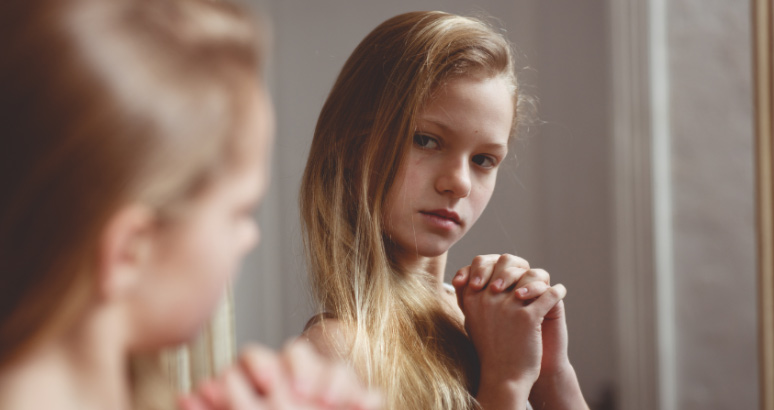Let’s face it, body image plays a vital role in our overall impressions of others. This is human nature. So much of it is led by society and media expectations that are placed onto us daily. Who you are as a person should not be judged by your physical appearance alone.
Your interpretation of your own body image is made up of a number of perceptions. It’s made up of a combination of your internal thoughts, and inner self-confidence. It can impact the way you treat yourself, and it can influence how you feel.
Personal perception is not always the way you appear to others. For example, you may feel nervous about wearing a new dress in public. Your perception of wearing it the mall could recall all the time’s people surrounding you gave you a funny look. You happen to bump into a friend who compliments you who is mesmerised by how nice you look. It’s important to remember that your own opinion, history, and your environment have influenced some patterns in the way you think.
Body Image obsession can be taken to the extreme, and it can make a person unwell. For example, eating disorders can be a concern. It is not an uncommon experience for people to feel the pressure of wanting to look perfect. It can end up being a fixation because it can lead to a toxic journey. It’s important to remember, each individual is unique and they will have their own limits of what works well for them to stay balanced, healthy, and thrive as an individual.
Personal Story
“When I was 8 years old I was dragged into a mind-set so cruel and horrible. At that age you wouldn’t think of a child hating what they look like or who they are. Well I certainly did, it wasn’t the bullying that bothered me most of the time. It was me who was bothering me a lot of the time. I dealt with a lot of severe bullying, but it was the fact that as soon as I believed it, it would start turning into self-hate because all along it was me who was bullying myself.
When I was 11 years old, I remember coming home from school in tears telling my mum that I had to change, that I needed to change because I hated who I was. By that stage I had already spent years of my life, hating what I looked like, hating every part of me and being so very disgusted with myself that when someone complimented me or said that I looked beautiful, I would shut it down because why believe something that you know isn’t true?
I now know what it is like to feel self-love, what it’s like to love and accept myself for who I am. I’m a different person, and I couldn’t be prouder of my accomplishments.”
Eating Disorders
Eating disorders can take many forms and are characterised by disturbed eating or eating-related behaviours that lead to changes in the person’s food consumption to a degree that is harmful to their health and well-being.
It’s estimated that one million Australians have an eating disorder, and the numbers of young people with an eating disorder have doubled within the last ten years.
Eating disorders are more common than most people think. About one in 20 Australians has an eating disorder and the rate in the Australian population is increasing.
A Personal Story
“There is no magic cure for anorexia. There is no guarantee that it will ever be completely gone. But for now, belonging with myself is getting easier each day that passes. Acceptance, support, understanding, and love have helped me rediscover who I am again. Fighting my instincts and recovering is a battle in itself: but everywhere is better than living in a world that is ultimately is trying to convince you to slowly kill yourself.
Recovery is a difficult process: it’s hard to keep yourself from saying things like “if you have never been in the depths of hell, how do you think you can understand me when I say ‘I want to eat but I can’t.” But now, tiny everyday miracles occur in my life. There are small steps forward, an unexpected smile of acceptance, and a mirror that doesn’t matter anymore.”
Getting Help
It is possible to train your mind to adopt a positive Body Image. Know that it isn’t always easy, and it can be a journey that lasts a life-time. By working on yourself, and investing in a personal development journey it can get easier. Self-love may not come naturally. Sometimes you have to take things day by day, step by step, breath by breath, and trust that everything will be okay. To maintain a positive body image you have to start with the little things. If you or someone you know is struggling remember to:
– Put self-care into action.
– Seeking help from a professional can help to support a recovery process.
Being A Carer
If you are supporting someone who is struggling with their body image, know that you are not alone. There are some support groups for carers and family members. For more information click here.
Mind Blank aims to reduce the risk of suicide in schools and communities. Our programs are designed to work with schools to educate the community in helping to identify the signs and systems of mental health issues. Our programs highlight vital help-seeking pathways to take to help support a friend in a time of need. Equipping young people with skills as an early intervention tactic helps to prevent harm and support help negation.


